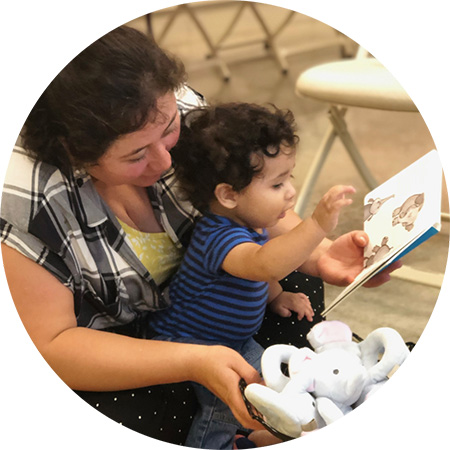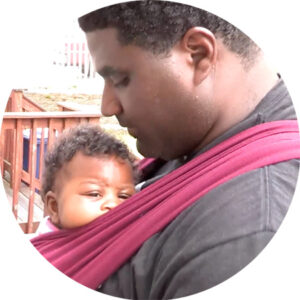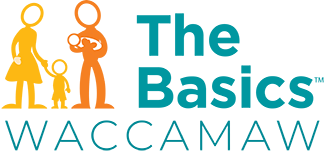Our community is part of a national Basics Learning Network of communities, all dedicated to The Basics vision. The network is led by The Basics, Inc., a nonprofit organization based in Boston, where the movement began.
Our Vision:
The Basics Vision is a Waccamaw Region where infants, toddlers, and preschoolers of all racial/ethnic and socioeconomic backgrounds are on track to achieve their full potential–having benefited from early experiences that foster healthy brain development, learning, joy, and resilience.
Our Mission:
The Basics Mission is to pursue both equity and excellence, by building community capacity to engage and support parents and other caregivers of young children in their roles as the most important influences in their children’s lives.
National History
The Basics movement began because of three research-based facts:
- Early childhood experiences have long-term impacts on brain architecture, kindergarten readiness, and lifetime success.
- Cognitive skill gaps between children from different racial, ethnic, and socioeconomic backgrounds are clear in national data long before kindergarten, by the age of two.
- Research on the science of early development provides strong guidance regarding what children need to experience in order to thrive, instead of falling behind early.
Founder Dr. Ron Ferguson was the faculty director of the Achievement Gap Initiative (AGI) at Harvard University, when he first noticed in the national Early Childhood Longitudinal Study (Birth Cohort) that cognitive skill gaps between children of different racial, ethnic, and parental-education groups were very apparent by twenty-four months. He began exploring how to contribute to the large body of work that was already underway to support early learning and brain development, but he wanted to scale across whole communities to reach every child, starting at birth.

The AGI convened a national conference and science advisory committee to formulate five tenets of caregiving practice, now called The Basics Principles, around which to organize The Basics movement. The aim was socioecological saturation, meaning to infuse multiple settings in communities with information, social reinforcements, and regular reminders regarding the benefits of using The Basics Principles routinely in early childhood parenting/caregiving.
The AGI and The Black Philanthropy Fund (an organization of African Americans in Boston) formally launched The Basics movement in Boston in September of 2016 to help prepare children from all backgrounds and across whole neighborhoods to thrive, starting at birth.
The word spread quickly. By December, teams from 11 cities convened in Boston to learn about The Principles, the tools, and the approach. Rather than wait years for Boston to refine the approach, attendees agreed, “We’ll figure it out together.” The Basics Learning Network (BLN) was thereby born. It operates under the leadership of The Basics, Inc., a 501(c)3 nonprofit organization under the fiscal sponsorship of Third Sector New England (TSNE).
Today, coalitions across dozens of BLN cities, towns, and counties in the US, Brazil, and Australia are engaging their communities, participating in BLN research, and regularly convening to learn, innovate, and share best practices.
Waccamaw History
The Basics Waccamaw is an affiliate of the Basics Learning Network, a nationally recognized initiative, a collective movement to support early learning and development, offering free resources that give all children living in the Waccamaw (Horry, Georgetown and Williamsburg counties) a great start to life.

United Way of Horry County and Black River United Way have partnered to launch The Basics Waccamaw to improve the number of children in the Tri-County area who are developmentally on track and entering kindergarten ready. We bring a public health perspective to encourage enriched childhood brain development during the early stages of life. We focus on family and community— from parents and caregivers to community support systems outside of the home — while incorporating the latest research to identify disparities and implement innovative solutions. Learn more about The Basics below!


